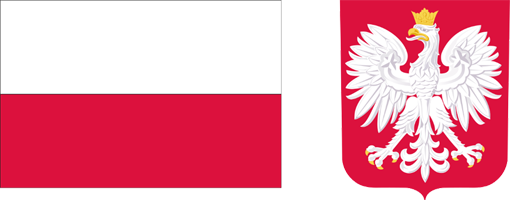Current issue
Archive
About the Journal
Aims and Scope
Editorial Board/Editorial Team
List of reviewers
Publishing process
Publishing Ethics and Malpractice Statement
Personal data protection (GDPR)
Creative Commons License
CrossRef Member / Similarity Check
For Authors
Call for papers
Guidelines for authors
Submitting a manuscript through the editorial system – step by step
For Reviewers
Peer review process
Guidelines for reviewers
Submitting a review – step by step
Contact
RESEARCH PAPER
EXPLORING LINKAGES BETWEEN THE COMMON AGRICULTURAL POLICY AND FOOD SECURITY IN THE MEDITERRANEAN REGION
1
International Centre for Advanced Mediterranean Agronomic Studies (CIHEAM), Mediterranean Agronomic Institute of Bari
2
Faculty of Agriculture, University of East Sarajevo, Bosnia and Herzegovina
3
Poznan University of Life Sciences
Acceptance date: 2014-06-16
Publication date: 2014-06-16
Zagadnienia Ekonomiki Rolnej / Problems of Agricultural Economics 2014;339(2):79-103
KEYWORDS
ABSTRACT
Mediterranean developing countries are threatened by climate change and population growth could make a bad situation worse. However, SEMCs can be a breadbasket with investment in infrastructure, increased irrigation, input use, improved technology and removal of trade barriers between countries. Recent international socio-economic and structural changes show a trend towards greater convergence and complementarities between the EU and SMCs in the definition of agricultural policies, despite socio-economic and structural differences. The CAP’s initiatives should be seized by SEMCs for promoting structural changes in agriculture (land policy reform, productivity improvement, technological and social innovation promotion, sustainable soil and water resources management) for achieving food security.
Nevertheless, the EU, by fostering agricultural competitiveness and exports through the CAP, increases food dependency of food insecure countries including many eastern and southern Mediterranean ones. These countries suffer from food trade deficits and growing ex¬penses for purchases of food especially cereals. They urgently need a policy shift that fosters domestic agricultural production and limits import dependency. Therefore, the EU should make every effort to support such a shift. Unfortunately, the CAP seems heading in the opposite direction thus deep¬ening import dependency and aggravating the problem of food insecurity in the South to secure export markets for the European agro-food industry.
The CAP should respond to food security challenge through the promotion of an equitable food trade regime by removing all market-distorting agricultural tariffs and subsidies and, additionally, supporting sustainable agricultural intensification in developing countries.
There is also a need to evaluate the external multifaceted impact dimension of CAP on global food market and food and nutrition security in developing countries in general and SEMCs in particular. Monitoring the consequences of agricultural liberalisation agreements between the EU and SEMCs and designing and implementing appropriate contingency strategies will be essential. Family farmers destabilisation, food dependency aggravation, rural areas crisis and heightened pressure on natural resources are often mentioned as the potential risks of the Euro-Mediterranean agricultural trade liberalisation. As a matter of fact, and as shown by the present paper, available data on the Euro-Mediterranean agricultural liberalisation and the CAP impacts on food security in non-EU countries are quite fragmented, partial and incomprehensive.
SMCs are experiencing profound changes that will have a strong impact on rural economies. It is difficult to dissociate the ongoing reform of the EU’s CAP from socio-economic development, especially of rural areas, throughout the Mediterranean region. Managing food insecurity in the Mediterranean region will become a geostrategic issue for the EU in the years to come.
However, the assumption that Euro-Mediterranean free trade alone would lead to a strategy which would boost the socio-economic development expected in the SEMCs is increasingly challenged. Issues on food security in the Mediterranean call for integrated Euro-Mediterranean cooperation to foster dynamics to meet food, rural, territorial, social and environmental challenges. Promoting a long-term regional food security vision is vital. The EU can no longer ignore certain critical agricultural and rural realities in SMCs thus underestimating the geopolitical threats that could stem from food insecurity. Quantitative and qualitative food security in SEMCs must be sustained as the principal thrust of Euro-Mediterranean cooperation initiatives promoted by regional organisations such as the Union for the Mediterranean, CIHEAM, etc. in collaboration with the European Commission and EU’s Member States.
Share
RELATED ARTICLE
We process personal data collected when visiting the website. The function of obtaining information about users and their behavior is carried out by voluntarily entered information in forms and saving cookies in end devices. Data, including cookies, are used to provide services, improve the user experience and to analyze the traffic in accordance with the Privacy policy. Data are also collected and processed by Google Analytics tool (more).
You can change cookies settings in your browser. Restricted use of cookies in the browser configuration may affect some functionalities of the website.
You can change cookies settings in your browser. Restricted use of cookies in the browser configuration may affect some functionalities of the website.



